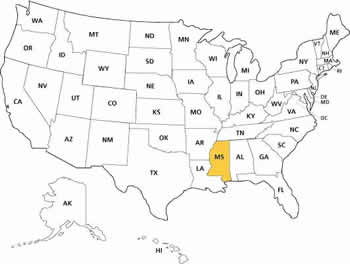Expert Slide and Photo Scanning Since 2002.
4,000 ppi Scanning and Premium Photoshop
Editing On Every Scan. 49¢ most slides.
We also can make PRINTS from your Slides.
www.Slides.Pics
Mississippi 35mm Slide, Photo & Film Scanning

All Scanning companies will NOT give you the same results, Click Here.
While we do NOT have a local office in your state, Affordable Scanning Services LLC has provided services for customers all over Mississippi, including Jackson, Gulfport, Biloxi, Hattiesburg, Southhaven, Greenville, Meridian, Tupelo, Olive Branch, Clinton, and the United States and Canada since 2002. In all that time we have worked with multiple people, university's and businesses with many different needs and end results. Our customers are very important to us and they are our best salespeople.
Some of the newer scanning companies, unable to compete with our services, have resorted to sending their customer's 35mm slides, photos and films to India or other third world countries. That is bad enough but what we think is really underhanded, is that they are not up front about this minor little detail. Most of their customers have no idea that their family photo collction is being loaded into a cargo plane and flown 7,000 miles over the ocean to India. And that may be the safest part of the trip.
At Affordable 35mm Slide Scanning, your job does not leave our premises,in Waupun Wisconsin, until we return ship to you. We treat your precious photo collection just like it was our own and I can tell you for certain, that we would never be sending our heirloom family photos to a thirdworld sweatshop in order to save a few dollars.
All jobs are worked by 100% USA citizens who are talented and skillful and they really are artists at heart. They work your family photos just like they were working their very own photos. We realize that this is the only time that you are going to be converting your slides and photos to digital and we are going to make it a good Experience for you.
Mississippi History
"Mississippi was part of the Mississippian culture in the early part of the 2nd millennium AD; descendant Native American tribes include the Chickasaw and Choctaw. Other tribes who inhabited the territory of Mississippi (and whose names became those of local towns) include the Natchez, the Yazoo, and the Biloxi.
The first European expedition into the territory that became Mississippi was that of Hernando de Soto, who passed through in 1540. The first settlement was Fort Maurepas (also known as Old Biloxi) at Ocean Springs, settled by Pierre Le Moyne d'Iberville in April 1699. In 1716, Natchez was founded on the Mississippi River (as Fort Rosalie); it became the dominant town and trading post of the area. After spending some time under Spanish, British, and French nominal jurisdiction, the Mississippi area was deeded to the British after the French and Indian War under the terms of the Treaty of Paris (1763).
The Mississippi Territory was organized on April 7, 1798, from territory ceded by Georgia and South Carolina. It was later twice expanded to include disputed territory claimed by both the U.S. and Spain. Land was purchased (generally through unequal treaties) from Native American tribes from 1800 to about 1830.
Mississippi was the 20th state admitted to the Union, on December 10, 1817.
When cotton was king during the 1850s, Mississippi plantation owners—especially those of the Delta and Black Belt regions—became increasingly wealthy due to the high fertility of the soil, the high price of cotton on the international market, and their assets in slaves. The planters' dependence on hundreds of thousands of slaves for labor, and the severe wealth imbalances among whites played heavy roles in both state politics and in the support for secession. By 1860 the enslaved population numbered 436,631 or 55% of the state's total of 791,305. There were fewer than 1000 free people of color. The relatively low population of the state before the Civil War reflected the fact that much of the state was still wilderness and needed more settlers for development.
Mississippi was the second state to secede from the Union as one of the Confederate States of America on January 9, 1861. During the Civil War the Confederate States were defeated.
During Reconstruction the first constitutional convention in 1868 framed a constitution whose major elements would last for 22 years. The convention was the first political organization to include colored representatives, 17 among the 100 members. Although 32 counties had Negro majorities, they elected whites as well as Negroes to represent them. The convention adopted universal suffrage; did away with property qualifications for suffrage or for office, which benefited poor whites, too; provided for the state's first public school system; forbade race distinctions in the possession and inheritance of property; and prohibited limiting of civil rights in travel.[8] Under the terms of Reconstruction, Mississippi was readmitted to the Union on February 23, 1870.
While Mississippi typified the Deep South in passing Jim Crow laws in the early 20th century, its history was more complex than just discrimination. Because the Mississippi Delta contained so much fertile bottomland which had not been farmed, after the Civil War African Americans achieved unusually high rates of land ownership in bottomland areas away from the riverfronts. Also, tens of thousands of immigrants were attracted to the Delta. In the 1870s and 1880s, many black farmers succeeded in gaining ownership of land. By the turn of the century, two-thirds of the farmers (in numbers) in Mississippi who owned land in the Delta were African American and seemed headed for having a stake in the future. Their clearing and development of the land made it valuable but many were able to keep going through the difficult years of falling cotton prices by extending their debts. Cotton prices fell throughout the decades following the Civil War. As another agricultural depression lowered cotton prices into the 1890s, African American farmers finally had to sell their land to pay off debts.
Disfranchisement of African Americans at the turn of the century, a series of increasingly restrictive racial segregation laws enacted during the first part of the 20th century, increased lynchings, failure of the cotton crops due to boll weevil infestation, and successive severe flooding in 1912 and 1913 resulted in thousands of African Americans leaving Mississippi to migrate north starting during World War I. With the Great Migration, they left a society that had been steadily closing off opportunity. With control of the ballot box and more access to credit, white planters expanded their ownership of Delta backcountry and could take advantage of new railroads. By 1910 a majority of black farmers in the Delta were sharecroppers, and by 1920, the third generation after freedom, African Americans were mostly landless laborers facing inescapable poverty.
Most migrants from Mississippi took the trains north to Chicago. Another wave of migration started in the 1940's. Almost half a million people left Mississippi in the second migration, three-quarters of them black.
Mississippi generated rich, quintessentially American music traditions: gospel music, country music, jazz, blues, and rock and roll, all were invented, promulgated, or heavily developed by Mississippi musicians, and most came from the Mississippi Delta. Many musicians carried their music north to Chicago, where it became part of that city's jazz and blues.
The state's complex history has generated great storytellers. Mississippi is noted for award-winning twentieth-century authors native to or associated with the state, including Nobel Prize-winner William Faulkner, playwright Tennessee Williams, Eudora Welty, Richard Wright, Ellen Douglas, Walker Percy, Willie Morris, historian Shelby Foote, Margaret Walker, Ellen Gilchrist, Alice Walker, and playwright Beth Henley.
Mississippi was a center of activity during the African-American Civil Rights Movement. Students and community organizers from across the country came to help register voters and establish Freedom Schools. Resistance and harsh attitudes of many white politicians (including the creation of the Mississippi State Sovereignty Commission), the participation of Mississippians in the White Citizens' Councils, and the violent tactics of the Ku Klux Klan and its sympathizers, gained Mississippi a reputation in the 1960s as a reactionary state.
In 1966 the state was the last to repeal prohibition of alcohol. In 1995 it symbolically adopted the Thirteenth Amendment, which abolished slavery. These amendments were still in effect in Mississippi even before their ratification there.
On August 17, 1969, Category 5 Hurricane Camille hit the Mississippi coast, killing 248 people and causing US$1.5 billion in damage (1969 dollars). On August 29, 2005, Hurricane Katrina, though a Category 3 storm upon final landfall, caused even greater destruction across the entire 90 miles (145 km) of Mississippi Gulf Coast from Louisiana to Alabama.
On August 30, 2007, a report by the United States Census Bureau indicated that Mississippi is the poorest state in the country. Many white cotton farmers have large, mechanized plantations, some of which receive extensive Federal subsidies, yet many African Americans still live as poor, rural, landless laborers. The state had a median household income of $34,473."
From:
https://en.wikipedia.org/wiki/Mississippi
|
About Our Company Copyright 2024 |
|
Email: Click Here After hours you will get a quicker response by using email. We answer email at ALL hours. Telephone messages are replied to during business hours. Affordable Scanning Services LLC 400 Bittersweet Lane Waupun, WI 53963
|
 Home
Home Order Forms
Order Forms



